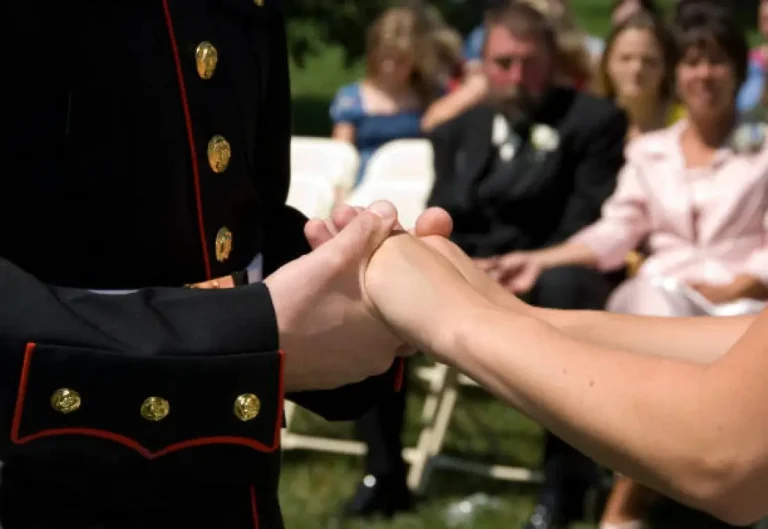The Ultimatum That Changed Everything: When I Chose Self-Respect Over Family
My daughter told me to either serve her husband or move out. I smiled, picked up my suitcase, and quietly left. One week later… I saw 22 missed calls.
The Breaking Point
My keys were still warm in my palm when I pushed through the front door, grocery bags cutting into my wrists from the weight of another week’s provisions. The Saturday afternoon light filtered through the living room curtains, casting everything in that soft spring glow that usually brought me comfort after Martha’s passing. Not today.
Harry was sprawled in my leather recliner—the last gift my beloved wife had given me before cancer took her away. His stocking feet were propped up disrespectfully, a half-empty beer bottle dangling from his fingers like he owned the place. The television remote rested on his belly as he watched basketball with the casual entitlement of someone who had never earned his position.
“Old man,” he said without even looking up from the game, his voice carrying that familiar tone of dismissive authority. “Grab me another beer from the fridge while you’re up.”
I set the grocery bags down slowly, feeling the plastic handles leave angry red marks across my palms. The weight of those bags represented more than just food—they symbolized years of my social security checks disappearing into someone else’s comfort. “Excuse me?”
“You heard me,” Harry’s eyes remained fixed on the television screen, his indifference cutting deeper than outright hostility. “Corona. Not that cheap beer you drink.”
Something cold and final settled in my chest. I had bought those Corona beers specifically for him, using money I could barely afford on my fixed income. “Harry, I just walked in the door. I need to put these groceries away first.”
Now he turned to look at me, his face wearing that familiar expression of exaggerated patience—the look of someone dealing with an unreasonable child. “What’s the big deal, Clark? You’re already standing up. I’m comfortable here. Just grab the beer.”
“The big deal,” I said, my voice steady despite the anger building inside me, “is that this is my house.”
Harry’s feet hit the floor with a deliberate thud. He stood slowly, using his six-foot frame like a weapon of intimidation. “Your house? That’s funny, because your daughter and I live here. We pay the bills around here. With my money.”
The lie hung in the air between us, bold and shameless. Harry hadn’t paid a bill in this house for five years.
“Details, details,” he said, stepping closer until I could see the calculation in his eyes. “Look, Clark, we can do this the easy way or the hard way. You want to keep living here peacefully? Then you play ball. It’s really that simple.”
The Ultimatum
The kitchen door swung open, and my daughter Tiffany appeared, taking in the scene with practiced assessment: Harry standing over me with barely contained aggression, the tension thick enough to choke on, the grocery bags abandoned on the floor.
“What’s going on out here?” she asked, though her tone suggested she already knew and had chosen her side.
“Your father’s being difficult again,” Harry said, his eyes never leaving mine. “I asked him politely to get me a beer, and he’s making it into some kind of federal case.”
Tiffany looked at me with the kind of disappointed expression usually reserved for misbehaving children. “Dad, just get him the beer. It’s really not worth fighting over something so small.”
But Harry wasn’t finished establishing his dominance. He moved closer, close enough that I could smell the alcohol on his breath and see the cold determination in his eyes. “See, Clark, here’s how this is going to work from now on. You live in our house, which means you contribute to our household. That means when I ask you to do something—anything—you do it. No questions, no attitude, no discussion.”
“Our house?” I repeated, my voice barely above a whisper.
“That’s exactly right,” Tiffany stepped beside her husband, presenting a united front that broke something fundamental inside me. “Dad, you need to make a decision right now. You will either respect my husband and do what he asks, or you can get out of my house.”
The words hung in the air like smoke from a fire that had been smoldering for years. I looked at my daughter, searching desperately for any trace of the little girl who used to climb into my lap during thunderstorms, who used to bring me dandelions and call me her hero. Instead, I saw a stranger wearing her face, someone who could stand by and watch her husband humiliate the man who had raised her.
“Alright,” I said quietly, my voice steady despite the emotional earthquake happening inside me.
Harry’s face broke into a satisfied smirk, the expression of someone who believed he had finally put an old man in his place. “Good. I’m glad we understand each other. Now, about that beer—”
“I’ll pack,” I interrupted.
The Departure
The smirk died on Harry’s face like a candle being snuffed out. Tiffany’s mouth fell open in shock, her eyes wide with disbelief. They had expected me to crumble, to apologize and shuffle obediently to the kitchen like a beaten dog. Instead, I turned toward the hallway, leaving the grocery bags exactly where they sat.
Behind me, I heard Tiffany’s whispered, “Dad, wait,” but the words felt hollow, an afterthought rather than genuine concern. I was already walking toward my bedroom, toward the beginning of whatever came next.
The suitcase came down from the closet shelf with a soft thump that seemed to echo through the suddenly quiet house. I had bought this particular piece of luggage for my honeymoon trip to Yellowstone with Martha, back when we were young and the future stretched ahead like an open road full of possibilities. Now it would carry me toward an uncertain future, but at least it would be a future I chose for myself.
I packed methodically, with the careful precision of someone who understood that this was permanent. Underwear, socks, three changes of clothes—just enough to maintain dignity while starting over. The framed photograph of Martha went into the side pocket, wrapped carefully in tissue paper like the precious memory it represented.
When I wheeled the suitcase down the hallway, they had stopped their whispered conversation. Harry was back in his recliner, watching me with wary eyes. Tiffany stood by the kitchen doorway with her arms crossed, trying to project an authority she didn’t feel. Neither of them said goodbye. Neither of them tried to stop me. In that moment, their silence told me everything I needed to know about where I truly stood in their lives.
The Reckoning Begins
The thirty-minute drive to the Pine Lodge Motel gave me time to think clearly for the first time in years. As the familiar landscape rolled past my windows, I began calculating the true cost of my generosity—not just in dollars, but in dignity, respect, and self-worth.
Tiffany’s college tuition: $40,000 a year for four years. I had worked overtime shifts at the bank, sacrificing my health and social life to ensure she graduated debt-free. Her wedding: $25,000 when Harry’s family couldn’t afford their portion, covered quietly by my retirement savings. The house down payment: $80,000 from my carefully accumulated nest egg because “young couples need help getting started.”
But the bleeding hadn’t stopped there. Monthly mortgage payments: $1,200. Utilities: $300. Groceries: $500. Car insurance for vehicles I never drove: $280. My social security check disappeared into their lives piece by piece, month after month, year after year. I had convinced myself this was love, this was what family did for each other. Instead, it had been a slow-motion financial suicide disguised as generosity.
The motel room was small but clean, furnished with the kind of anonymous furniture that belonged to no one and everyone. I sat heavily on the edge of the mattress, feeling the weight of my decision settle around me like a blanket. The silence here was different from the oppressive quiet of a house where I wasn’t wanted—this was the peaceful silence of a space that made no demands on me.
I pulled out my phone and began scrolling through my contacts: bank numbers, insurance companies, credit card services. Tomorrow was Sunday, but there were some things that could still be accomplished.
The Strategic Response
Sunday morning, I spread my financial paperwork across the small motel table like a general planning a military campaign. Each document represented a thread in the web of financial dependency I had woven around my daughter and her husband. It was time to start cutting those threads, one by one.
The first call went to First National Bank, where I had worked for fifteen years before retirement. “I need to cancel the automatic mortgage payment for 847 Pine Street,” I told the customer service representative.
There was a pause on the other end. “Sir, our records show that payment has been active for five years. Are you absolutely certain you want to cancel?”
“Completely certain,” I replied. “The current homeowners no longer qualify for my financial assistance.”
The second call was to my insurance company. Harry’s Silverado pickup and Tiffany’s Honda Accord were both on my policy—vehicles I had never driven but had been paying to insure for years. “I need to remove two vehicles from my policy, effective immediately,” I told the agent.
“When would you like this change to take effect, Mr. Miller?”
“Today.”
The credit cards took longer to address. Tiffany was an authorized user on three of my accounts, and I had been paying an average of $500 monthly on balances I had never created. “Removing authorized users means they’ll need to apply for their own credit accounts,” the customer service representative explained patiently.
“I understand completely,” I said. “Please remove them immediately.”
By noon, I had made eight crucial phone calls. Mortgage payments stopped. Insurance policies canceled. Credit cards blocked. The automatic transfers that had been slowly bleeding my accounts dry for half a decade—all of it ended with a few simple conversations.
My phone sat silent on the motel room table. They didn’t know yet what had happened, but they would discover it soon enough. And when they did, I would be ready.
The Desperate Calls
The week that followed passed quietly for me, but my phone told a different story. By Friday, there were twenty-two missed calls accumulating like evidence of mounting panic. I listened to them in chronological order, watching the progression from confusion to anger to outright desperation.
The first message was from Tiffany, her voice puzzled but not yet concerned: “Dad, the bank called about some kind of error with the mortgage payment. Can you call them and straighten this out?”
Next came Harry, his tone annoyed rather than worried: “Clark, there’s some problem with the car insurance. They’re saying the policy was canceled. You need to fix this immediately.”
By Wednesday, panic had begun creeping into their voices. “Dad, what the hell is going on?” Tiffany’s voice cracked with stress. “The bank says you deliberately stopped the mortgage payment. They want the full amount by Friday, or they’ll start foreclosure proceedings!”
Harry’s messages grew increasingly aggressive: “Clark, you need to fix this situation right now! You’re making us look like deadbeats to the whole neighborhood!”
The later calls bordered on begging, with Tiffany crying and Harry attempting a softer, more manipulative approach. “Look, I know we had words,” he said in one message, “but you can’t destroy our lives over some stupid argument about beer.”
I deleted each message after listening, feeling no satisfaction but also no regret. They had made their choice when they delivered that ultimatum. Now they were discovering the consequences.
The Confrontation
Thursday morning brought a loud knock on my motel room door. Through the peephole, I could see Tiffany and Harry standing outside, her eyes red-rimmed from crying, his face flushed with barely controlled anger.
“We need to talk,” Harry said the moment I opened the door.
“About what?” I asked calmly.
“About the fact that you’re trying to ruin our lives over some petty argument about beer,” he pushed forward aggressively.
“I’m not trying to ruin anything,” I said, my voice steady and reasonable. “I’m simply no longer paying for your lives. There’s a significant difference.”
“The mortgage, Clark! You can’t just stop paying the mortgage!”
“Actually, I can,” I corrected him. “It’s my house. My name on the deed. My signature on the loan documents. You two were simply guests who overstayed your welcome.”
“Dad, please,” Tiffany pleaded, her voice breaking with genuine fear. “We can work this out somehow. But you can’t just abandon us without any warning.”
“You gave me an ultimatum,” I reminded her gently. “Serve Harry or get out. Those were your exact words, sweetheart.”
“I didn’t mean it the way it sounded,” she protested weakly.
“Yes, you did,” I looked at my daughter—this stranger wearing her face—with profound sadness. “You just didn’t expect me to choose option two.”
Harry tried switching tactics, his voice becoming artificially calm and reasonable. “Look, we all said things we didn’t mean in the heat of the moment. But you’re talking about our home here, our entire life.”
“Your life that I’ve been funding for five years,” I pointed out. “Your home that I’ve been paying for. Your comfort that came at the expense of my dignity.”
“Dad, what about family?” Tiffany’s voice broke completely. “What about everything we mean to each other?”
For a moment, I remembered the little girl who used to bring me dandelions and tell me she loved me more than ice cream. But that girl had grown into someone who could stand silently while her husband humiliated her father in his own home.
“Family works both ways, sweetheart,” I said quietly. “I spent five years taking care of you financially and emotionally. When it came time for you to take care of me—to simply show me basic respect in my own home—you chose him instead.”
The Truth Emerges
My peaceful week at the motel was interrupted Tuesday morning when I encountered Bob Harrison at the Main Street diner. Bob and I had worked together at First National Bank for fifteen years, and he was one of the few people who truly understood the scope of my financial generosity toward Tiffany and Harry.
“Haven’t seen you since Martha’s funeral,” he said, sliding into the booth across from me. “Heard you moved out to Pine Lodge. Everything alright?”
“Family situation,” I said carefully, not wanting to burden him with details.
Bob nodded knowingly. “That son-in-law of yours tried to pull a fast one on us a few months back.”
My coffee cup stopped halfway to my lips. “What kind of fast one?”
“Wanted a home equity loan on your house. Fifty thousand dollars. Claimed the property belonged to him, brought in all kinds of documentation to prove it.”
The diner noise seemed to fade into background static. “My house? The one I’ve owned for twenty years?”
“That’s right. The documents he brought were professionally forged, but our verification process caught the discrepancies. We filed a report with the police.”
The implications hit me like a physical blow. This wasn’t just about Harry’s arrogance or even his disrespect. This was premeditated fraud, a calculated attempt to steal my home’s equity. “What was he planning to use the money for?”
Bob glanced around the diner, then leaned closer. “Word around town is that Harry’s got serious gambling debts. Pretty substantial ones, from what I hear.”
I walked back to the motel with my mind reeling. Harry’s increasing aggression, the ultimatum, his desperate need to establish dominance over me—it all made perfect sense now. He hadn’t just seen me as an inconvenience; he had viewed me as a mark, a victim to be manipulated and eventually defrauded.
Taking Action
That afternoon, I drove to the Flathead County Courthouse and filed a formal eviction notice. As the legal owner of the property, I had every right to reclaim my home. The thirty-day notice period would begin immediately.
My next stop was the police station, where I met with Detective Jim Morrison about Harry’s attempted fraud. The detective confirmed what Bob had told me: Harry was a regular at the Glacier Peaks Casino, playing high-stakes poker games he couldn’t afford. His debts had reached approximately $20,000, and his creditors were becoming increasingly impatient.
“Men like your son-in-law get desperate when the pressure builds,” Detective Morrison warned me. “They start taking bigger risks, making worse decisions. You need to be careful, Mr. Miller.”
I left the police station with a clearer understanding of the danger I had been living with unknowingly. Harry wasn’t just disrespectful—he was desperate, dishonest, and potentially dangerous. The more financial pressure he felt, the more reckless his behavior would become.
The Smear Campaign
Harry’s counterattack came sooner than I expected. Saturday morning, my phone began ringing with calls from concerned friends and neighbors. Tom from the hardware store, Mrs. Henderson from down the street, even Pastor Williams from our church—all reporting the same disturbing information.
“Clark, that son-in-law of yours is making rounds through town, telling everyone a different version of events,” Tom’s voice was angry on my behalf. “He’s claiming you abandoned them, that you’re having some kind of mental breakdown. Says you threw them out because Tiffany wouldn’t let you control their lives.”
The manipulation was sophisticated and calculated. Harry was painting himself as the victim of an unstable old man, garnering sympathy while destroying my reputation in the community where I had lived and worked for decades.
Then came a call from Tiffany herself, her voice thick with tears and desperation. “Dad, please pick up the phone. I’m pregnant, and all this stress is making me sick. The doctor says I could lose the baby if this situation doesn’t get resolved.”
The familiar protective instinct twisted in my stomach like a knife. Despite everything that had happened, she was still my daughter, and the thought of her suffering activated every paternal impulse I possessed. But something in her tone seemed rehearsed, calculated to achieve maximum emotional impact.
“Congratulations, sweetheart,” I said carefully. “When did you find out about the pregnancy?”
“Last week,” she replied quickly. “Dad, I can’t lose my baby because of money problems. You always taught me that family comes first.”
“Family does come first,” I agreed. “Have you seen a doctor about these complications you mentioned?”
There was a pause. “I have an appointment scheduled for next week.”
“Which doctor will you be seeing?”
“Dr. Richards at the women’s clinic.”
I knew Dr. Richards well—Martha had been her patient for years. “I’ll call her office directly to discuss how I can help with any medical expenses.”
“You can’t just call my doctor without permission!” Tiffany’s voice became sharp, revealing the manipulation beneath the tears.
“You’re absolutely right,” I said calmly. “Why don’t you have Dr. Richards call me directly to discuss payment arrangements?” The call ended abruptly.
Public Vindication
The truth had a way of emerging despite Harry’s best efforts to control the narrative. When I encountered him outside the bank later that week, he was holding court with a small crowd, spinning his tale of victimization with theatrical flair.
“The old man’s lost his mind completely,” he was saying loudly. “Senile and paranoid, thinks everyone’s trying to steal from him. Even kicked his own pregnant daughter out of the house over nothing.”
I approached the group calmly, my voice carrying clearly across the sidewalk. “Hello, Harry. How’s that gambling debt working out for you?”
The accusation hit him like a physical blow. The crowd murmured with sudden interest, and I could see Harry’s carefully constructed narrative beginning to crumble. His face cycled through several colors before settling on an unhealthy purple.
“You senile old bastard—” he began.
“I can document every dollar I’ve spent supporting you and my daughter for the past five years,” I interrupted smoothly. “Can you account for where your paychecks went during that same period?”
The crowd’s attention shifted entirely, their expressions changing from sympathy for Harry to curiosity about his financial activities. He stormed away without another word, realizing he had lost control of the public narrative.
The Collapse
The eviction notice was served by a county sheriff on a Tuesday morning. Harry lost his job the following day when his employer—a decent man who had known me for years—learned the truth about the situation and Harry’s gambling problems. Debt collectors began showing up at the house with increasing frequency, demanding payment on obligations that Harry could no longer hide.
The fairy tale marriage built on my financial foundation was crumbling with remarkable speed. Wednesday evening, I parked across the street from what had been my home and watched through the front windows as Harry and Tiffany engaged in an increasingly heated argument. His gestures were aggressive and threatening; hers were defensive and frightened.
The next morning, my phone rang with a call from Tiffany. Her voice was different—smaller, more vulnerable, stripped of the entitled confidence she had displayed during our confrontation.
“Dad, there are men at the house asking about Harry’s debts. They’re talking about garnishing wages and seizing assets. I had no idea he owed so much money.”
“That’s what happens when someone borrows money they can’t repay, sweetheart,” I said gently. “Those are the natural consequences of Harry’s choices.”
“Eighteen thousand dollars? He told me he was working overtime those nights when he came home late.” The realization in her voice was painful to hear.
“I’m sorry you’re learning about this now,” I said, and I meant it. Despite everything that had happened, I took no pleasure in her disillusionment.
The Path to Redemption
That evening, I called Tiffany and asked her to meet me at the diner the next morning. Just her—no Harry, no intermediaries, no manipulation.
“Dad, I know you’re angry with us,” she began as soon as she slid into the booth across from me. “But Harry’s lost his job, and these debt collectors won’t leave us alone. I don’t know what to do.”
“I’m going to offer you one opportunity to end this situation with some dignity intact, Tiffany,” I said, having spent considerable time thinking through what justice required. “I want a public acknowledgment of the truth. A complete, honest account of our financial relationship over the past five years.”
“You want me to humiliate myself publicly?”
“I want you to tell the truth,” I corrected. “There’s a significant difference between humiliation and accountability.”
“What about the house?” she asked quietly.
“The house is no longer negotiable,” I said firmly. “It’s going to the Montana Veterans Housing Initiative. Three military families will live there, people who served our country and deserve stable housing. My will has already been changed. Even if you do everything I’ve asked, the house won’t come back to you. That decision is final and irreversible.”
“Why?” The question came out as barely a whisper.
“Because I need to know that any reconciliation between us is based on genuine love and respect, not financial dependency,” I explained. “For five years, you and Harry treated me like a convenient funding source. I want to see if there’s anything left between us beyond money.”
Her eyes filled with tears—real ones this time, I could tell. “I’m sorry, Dad. I’m truly sorry for how we treated you.”
“Sorry isn’t sufficient anymore, sweetheart,” I said sadly. “I need to see actions that demonstrate genuine change.”
“How long do I have to decide?”
“Sunday morning. Church starts at ten o’clock. If you’re not there to tell the truth publicly, I’ll know you’ve made your choice.”
The Moment of Truth
Sunday morning, I arrived at our small community church to find the sanctuary fuller than usual. Word had spread through our tight-knit town about the family drama, and people were curious to see how it would resolve.
When Pastor Williams called for testimony time, Tiffany stood from her pew in the back and walked slowly to the front of the church. Her steps were steady, her bearing dignified despite the obvious difficulty of what she was about to do.
“I need to tell you all something important about my father,” she began, her voice carrying clearly through the suddenly silent sanctuary. “For the past five years, Clark Miller has been supporting my husband and me financially. He paid for my entire college education—$160,000. He paid for my wedding when my husband’s family couldn’t contribute—$25,000. He gave us his family home, and when we couldn’t make the mortgage payments, he covered those as well.”
Murmurs rippled through the congregation as people began to understand the scope of my sacrifices.
“Three weeks ago, when my father wouldn’t follow my husband’s orders like a servant in his own home, we gave him an ultimatum: obey or leave. My father chose to leave rather than surrender his dignity.” The sanctuary was completely silent now. “I stood by and watched my husband disrespect the man who had sacrificed his retirement security for our comfort. I chose loyalty to someone who threatened and belittled my father over loyalty to the man who raised me and loved me unconditionally.”
Tears flowed freely down her face, but her voice remained strong. “I’m standing here because my father offered me one last chance to choose truth over pride, accountability over self-protection. I was wrong. Harry was wrong. We took advantage of the most generous man I’ve ever known.” She looked directly at me. “Dad, ‘I’m sorry’ isn’t enough, but I’m hoping it’s a beginning.”
The Resolution
After the service, members of our community approached me with embraces and words of support. Many shared their own stories of family financial struggles and admired the difficult choice I had made to prioritize self-respect over family harmony.
Tiffany found me outside the church, her face calm despite the obvious emotional toll of her public confession. “The letter to the Tribune will run in Wednesday’s edition,” she said. “The Facebook post goes up tonight with the complete story.”
She hesitated before continuing. “Harry left town yesterday. Just disappeared without a note or explanation. Took what money was left in our joint account and vanished.”
I wasn’t surprised. Men like Harry always ran when their manipulations stopped working and consequences finally caught up with them.
“I’m sorry your marriage ended this way,” I said, and meant it.
“I’m not sorry,” she replied quietly. “I filed for divorce this morning. I should have done it years ago, but I was too afraid to face the truth about who he really was.”
The New Beginning
Three months later, I stood in the front yard of my former family home, watching three veteran families move into their new residence. The Montana Veterans Housing Initiative had transformed the property into transitional housing for military families, and seeing children playing in the yard where Tiffany had once played brought me unexpected peace.
My own life had settled into new rhythms at the lakeside cabin I had purchased with money that was finally my own to spend. The cabin was small but comfortable, with windows overlooking the water and enough space for the quiet life I was building.
My phone buzzed with a text message from Tiffany: “Dad, I’m three months into counseling and learning a lot about healthy relationships and personal responsibility. Could we try having coffee sometime? I’d like to earn your trust back, one conversation at a time.”
I smiled as I typed back: “Coffee sounds good. Saturday morning at the diner on Main Street.”
Her response came immediately: “I’ll be there. And Dad? Thank you for not giving up on me completely.”
I set the phone aside and watched the sunset paint the lake surface in shades of gold and orange. The mountains reflected in the still water, creating a perfect mirror image that reminded me of the balance I had finally achieved in my life.
Justice had been served, dignity preserved, and perhaps most importantly, a daughter was finally ready to earn back her father’s trust through actions rather than words. The ultimatum that was supposed to force my submission had instead given me back my freedom, my self-respect, and ultimately, a chance at a genuine relationship with my daughter.
It had been worth the wait, worth the pain, worth every difficult moment. Sometimes the most important battles we fight are the ones where we refuse to surrender our own worth, even when the cost seems impossibly high.
As the stars appeared in the darkening sky above the Rocky Mountains, I felt Martha’s presence in the gentle evening breeze. She would have been proud of the choice I made, proud that I had finally learned to value myself as much as I valued the people I loved.
The man who had walked out of that house with a single suitcase had been broken and dismissed. The man who sat by this peaceful lake had reclaimed his dignity, his independence, and his right to be treated with respect. And that transformation, I realized, was worth more than any house, any amount of money, or any relationship built on anything less than mutual love and genuine respect.
This story serves as a reminder that love and generosity should never come at the expense of basic human dignity. Sometimes the most loving thing we can do is set boundaries that protect our own well-being while creating opportunities for others to grow into better versions of themselves.

Emily Johnson is a critically acclaimed essayist and novelist known for her thought-provoking works centered on feminism, women’s rights, and modern relationships. Born and raised in Portland, Oregon, Emily grew up with a deep love of books, often spending her afternoons at her local library. She went on to study literature and gender studies at UCLA, where she became deeply involved in activism and began publishing essays in campus journals. Her debut essay collection, Voices Unbound, struck a chord with readers nationwide for its fearless exploration of gender dynamics, identity, and the challenges faced by women in contemporary society. Emily later transitioned into fiction, writing novels that balance compelling storytelling with social commentary. Her protagonists are often strong, multidimensional women navigating love, ambition, and the struggles of everyday life, making her a favorite among readers who crave authentic, relatable narratives. Critics praise her ability to merge personal intimacy with universal themes. Off the page, Emily is an advocate for women in publishing, leading workshops that encourage young female writers to embrace their voices. She lives in Seattle with her partner and two rescue cats, where she continues to write, teach, and inspire a new generation of storytellers.









